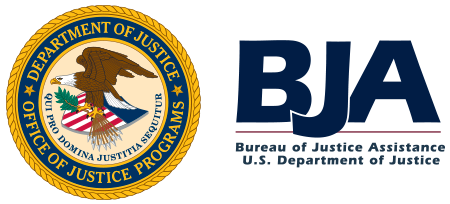Georgia Justice Reinvestment Initiative

Improving Community Supervision and Prioritizing Resources
Georgia used the Justice Reinvestment Initiative (JRI) in both 2012 and 2016 to adopt innovative policies to improve the state’s criminal justice system. As a result of its first JRI effort, Georgia prioritized prison space for people convicted of serious and violent offenses, diverted individuals from prison while still holding them accountable, and expanded accountability courts. In 2016, the state used JRI again, this time with a focus on community supervision, as Georgia had the highest rate of adults on probation in the country.1
Over several months in 2016, Georgia state and agency leaders worked with The Council of State Governments (CSG) Justice Center to conduct comprehensive data analyses and develop policy recommendations as part of the state’s work through JRI. These efforts were funded by The Pew Charitable Trusts and the Bureau of Justice Assistance (BJA). BJA is a component of the Department of Justice’s Office of Justice Programs. The JRI analysis showed that Georgia’s large probation population was due to widespread use of probation sentences for misdemeanor offenses, as well as lengthy felony probation sentences that were used in lieu of and in addition to prison sentences.2 Additionally, an estimated 50,000 people in Georgia had been on supervision for more than 2 years, despite the risk of recidivism dropping by half after an individual’s first year on supervision.3
As a result, in 2017, then-Governor Nathan Deal signed Act 226, codifying the JRI policy framework.4 It featured policies to reduce lengthy probation terms and large probation caseloads, enhance the cost-effectiveness of responses to probation and parole violations, and improve the handling of legal and financial obligations for people on felony probation.

This brief outlines the following JRI statutory goals and implementation takeaways:
- Prioritize supervision resources during the beginning of a person’s probation term.
- Encourage compliance with the terms of supervision.
- Seek early termination of probation terms for people who comply with the conditions of their supervision.
1. Prioritize supervision resources during the beginning of a person’s probation term.
To allow officers to direct more time and resources to people early in their probation term, when their risk of recidivism is highest, Georgia decreased the number of people on active supervision and reduced officer caseloads.
JRI legislation authorized the Department of Community Supervision (DCS) to move certain individuals on felony probation at low risk of reoffending to unsupervised status after 2 years, if they have paid their restitution obligations in full and they have maintained good conduct.
As shown in figure 1, between 2016 and 2020, Georgia increased the number of cases on unsupervised status by 68 percent.5 This change reduced the average caseload size by 33 percent, from 138 to 93.6 The decrease in the active felony probation population and caseloads allowed officers to devote more time and resources to people who are most likely to reoffend, which can increase their success on probation and ultimately reduce their chance of recidivism.
Figure 1 Actively Supervised Probation Population, April 2016 vs. June 2020

2. Encourage compliance with the terms of supervision.
Georgia gave certain individuals on probation an opportunity to earn discharge if they met specific conditions, which encouraged compliance with supervision terms by providing an incentive for good behavior.
As a result of JRI legislation, individuals sentenced to probation for a first-time felony offense receive a behavioral incentive date (BID). If a person maintains compliance with supervision terms, has no new arrests, has paid all restitution, and is granted release at the BID by a court, their probation is reduced from an average of 5 years to no more than 3 years. The BID policy provides an incentive for people on probation to comply with their supervision conditions and encourages positive behavior change to gain early discharge.
Since implementation, the BID policy has been used more broadly each year. Statewide, use of the BID sentencing option has grown steadily since adoption, increasing from 10.3 percent of eligible probation cases in fiscal year (FY) 2018 to 21.6 percent in FY 2020.7 The percentages in figure 2 indicate the proportion of new probation sentences with a BID out of all eligible probation sentences.
Figure 2 Behavioral Incentive Date (BID), FY 2018–FY 2020

3. Seek early termination of probation terms for people who comply with the conditions of their supervision.
To reduce the lengthy amount of time people spend on probation, Georgia directed DCS to file early termination requests for certain individuals after 3 years on supervision. Reducing the probation population and officer caseloads allows officers to more effectively use evidence-based supervision strategies that have been proven to reduce recidivism.
The JRI analysis revealed that lengthy probation and prison sentences, used in lieu of and in addition to prison sentences, are a contributing factor to Georgia’s large probation population. The JRI legislation required DCS to file a petition for early termination of probation sentences after 3 years on supervision if the following conditions were met:
- An individual is sentenced to certain nonviolent property or drug offenses.
- All probation conditions are met.
- The person has no new arrests.
- They have paid restitution in full.
Of all cases reviewed by DCS through June 2020, approximately 15 percent met eligibility requirements and were forwarded to courts for judicial review.8 As shown in figure 3, through June 2020, more than 22,000 early termination requests were approved by the courts.9
Figure 3 Early Termination Cases Reviewed by Judges: FY 2018–FY 2020


Additional Accomplishments Related to Reforms
- DCS adopted a new risk assessment instrument for classifying individuals rolling onto probation caseloads. The new tool considers any time that an individual spent in Georgia Department of Corrections’ custody prior to placement on probation in determining their risk level. Directing time and appropriate resources to people who are assessed as being at a high risk to reoffend can help them succeed on probation and lower their risk of recidivism.
- As part of the state’s JRI technical assistance, CSG Justice Center staff analyzed outcomes for individuals who had been treated at an RSAT facility to determine whether recidivism rates were higher for individuals receiving 6 months of treatment compared with people receiving 9 months of treatment. The analysis revealed that reducing the inpatient time in an RSAT facility from 9 months to 6 months did not adversely affect recidivism rates, indicating an opportunity for cost savings.10 Further, there was no significant difference in recidivism outcomes for direct to probation and for split probation placements in RSAT programs.11
- With subaward funding through JRI, DCS contracted with the University of Georgia to modify, pilot, and validate an existing program assessment tool to use for evaluating outcomes of the state’s day reporting centers. Additionally, the state began developing a data dashboard to display key criminal justice performance indicators of interest to legislators, stakeholders, and the public.
Endnotes
1. Angela Gunter and Alison Martin, Georgia: Monitoring Data Trends after 2017 Justice Reinvestment Initiative Reforms (New York: The Council of State Governments Justice Center. 2021).
2. Ibid.
3. Ibid.
4. “Justice Reinvestment in Georgia,” The Council of State Governments Justice Center, accessed November 20, 2023, https://csgjusticecenter. org/projects/justice-reinvestment/past-states/ georgia/.
5. Ibid.
6. Ibid.
7. Ibid.
8. Ibid.
9. Ibid.
10. Angela Gunter and Alison Martin, “Findings from the Residential Substance Abuse Treatment (RSAT) Study” (PowerPoint presentation, Presentation to Georgia Department of Corrections, Forsyth, GA, December 12, 2017).
11. Ibid.

The Justice Reinvestment Initiative (JRI) is a data-driven process funded through a public-private partnership between the Bureau of Justice Assistance (BJA), a component of the Department of Justice’s Office of Justice Programs, and The Pew Charitable Trusts. JRI aims to improve public safety by helping states make their justice systems more fair, effective, and efficient as they direct resources to address the complex factors that drive crime and recidivism.

The Council of State Governments (CSG) Justice Center is a national nonprofit organization that serves policymakers at the local, state, and federal levels from all branches of government. The CSG Justice Center has provided data-driven analyses and policy options to policymakers in more than 30 states as part of the Justice Reinvestment Initiative.
Acknowledgments
This project was supported by Grant No. 15PBJA-21- GK-04348-JRIX awarded by the Bureau of Justice Assistance. The Bureau of Justice Assistance is a component of the Department of Justice’s Office of Justice Programs, which also includes the Bureau of Justice Statistics, the National Institute of Justice, the Office of Juvenile Justice and Delinquency Prevention, the Office for Victims of Crime, and the SMART Office. Points of view or opinions in this document are those of the author and do not necessarily represent the official position or policies of the U.S. Department of Justice.
Project Contact:
Paul Nichols, Deputy Program Director | CSG Justice Center, pnichols@csg.org
